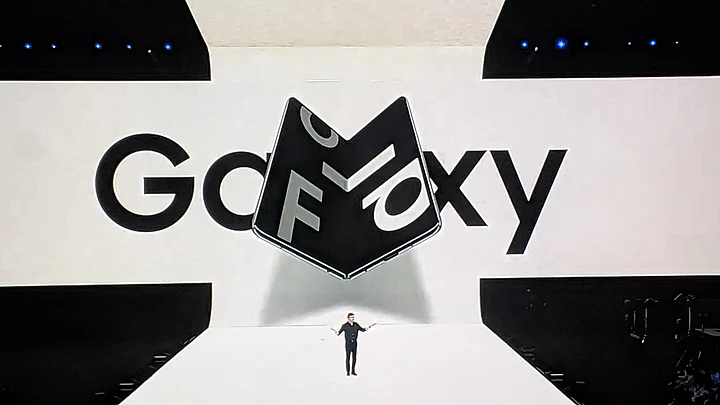Samsung has announced the Galaxy Fold, its first ever phone with a foldable screen that will be available to consumers. It gets a rather steep price tag of $1,980 (Rs 1.40 lakh approx) and will be available in LTE and 5G variants from 26 April onwards.
The Galaxy Fold, as Samsung showed at the UnPacked event in the United States on 20 February, gets two screens and works out as a smartphone-cum-tablet with an equally impressive set of six cameras rounding up the device.
The company also confirmed that the team and engineers behind the making of the Galaxy Fold managed to load two batteries which support a single power source. Having said that, not sure about a 4380mAh unit capable of lasting through the rigours of a phone-cum-tablet, that too with Samsung’s heavy duty screen resolution in tow.
The folded avatar of the Galaxy Fold gives you a relatively small 4.6-inch screen, and opening up the unit offers you a 7.3-inch Infinity edge display that resembles an iPad Mini for its stature.
The company relies on the hinge which is the basis around which the Galaxy Fold functions as a phone-cum-tablet device. But it was interesting to hear Samsung say that each screen works independently but when needed, it will seamlessly push the content from the phone’s screen to the bigger unfolded version of the device.
You browse through a Facebook video, open the phone and you get a bigger and full view of the same video, as showcased during the presentation.
This is the first time when Samsung is offering three app multi-tasking, which makes its way to the tablet version of the Galaxy Fold.
In terms of hardware, it packs a 7nm processor, paired with 12GB RAM and offering 512GB storage. Speaking of cameras, you get six in total; three at the back, two on the front and another one sitting in middle of both.
Speaking in terms of innovation, one has to credit Samsung for becoming one of the first in the industry to pull off a foldable screen phone. Having said that, it’s still a first generation product, which will see various iterations, and the software will probably be a lot better than what we’re used to with Android on a tablet.
(At The Quint, we question everything. Play an active role in shaping our journalism by becoming a member today.)
